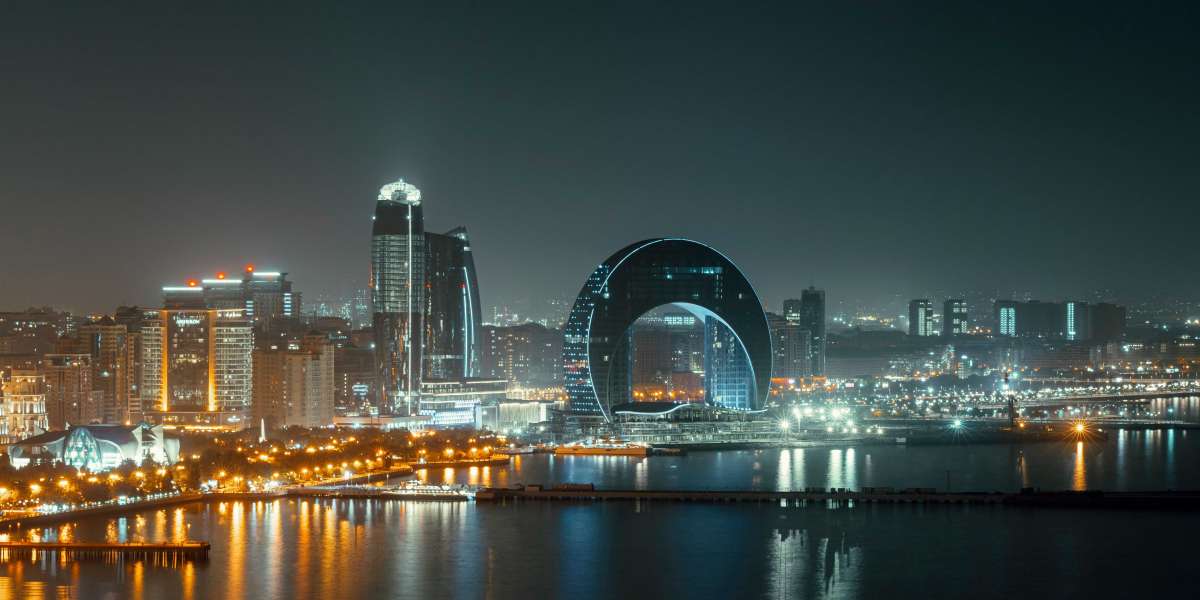Azerbaijan has become an increasingly attractive destination for Pakistani travelers, thanks to its rich culture, ease of travel, and growing visa facilitation. Over recent years—especially since the introduction of the e‑Visa (ASAN Visa) system—the visa approval landscape for Pakistanis has shifted in several ways. Though precise statistics on approval vs rejection are not always publicly released, observable indicators such as visa policy updates, tourist arrival numbers, and bureaucratic changes offer insight into how approval rates have likely changed, and what applicants should expect.
This article explores those trends: what has changed, what signals suggest shifting approval rates, what challenges remain, and how Pakistani applicants can best position themselves for success. For those planning to travel soon, understanding the process for the Azerbaijan visa from Pakistan is a great place to start.
Points in Azerbaijan Visa Policy for Pakistanis
To understand changes in visa approval rates, we need to look at several policy changes and operational improvements that affect how many Pakistani visa applications succeed. Some of the major developments include:
Launch and refinement of the e‑Visa (ASAN Visa) system to allow Pakistani citizens to apply online rather than via physical embassies. This reduces logistical hurdles and improves consistency.
Introduction of “Standard” and “Urgent” visa categories for Pakistanis. The urgent category offers faster response, but generally at higher cost; standard processing gives more time.
Fee adjustments and clearer processing times. In 2024‑2025, visa fees have been set (for example, USD 20 for standard, USD 50 for urgent) with clarity on processing times (standard: 3‑5 days; urgent: a few hours) in many reported sources.
Simplification of document and application steps. Changes designed to reduce unnecessary bureaucracy, clarify requirements, and reduce opportunities for application errors.
Growth in tourism numbers from Pakistan. There’s been reported increases in the flow of tourists from Pakistan to Azerbaijan (e.g. “tourist flow … surges by 51%” in first half of 2024 over previous periods) which suggests more visa approvals overall.
What We Know (and Don’t Know) About Approval Rates
What We Know
More Pakistani visitors are being recorded entering Azerbaijan. For example, from January–June 2024, the number of Pakistani tourists increased by about 51% compared to earlier periods.
Visa policy has become more accessible. The e‑Visa launch plus more transparent fee and processing options have likely reduced rejections due to technical issues (incorrect documents, missing paperwork).
Visa costs are more stable and known in advance, which helps applicants prepare properly. Unpredictable cost or hidden processing fees frequently cause rejections or delays when applicants fail to pay or document properly. The clearer fee structures help reduce that risk.
What We Don’t Know or Is Unclear
There is no regularly published official figure for the percentage of visa applications by Pakistanis that get rejected vs approved for Azerbaijan.
We don’t have detailed country‑by‑country or region‑by‑region breakdowns (e.g. whether people from Karachi or Peshawar have different approval outcomes).
We don’t have data showing the impact of specific mistakes (photo misformatting, bank statement issues, etc.) on rejection rates for Azerbaijan visas from Pakistani applicants.
Indicators Suggesting Improvement in Approval
From public reporting and travel statistics, several signs suggest that visa approval rates for Pakistanis have improved (or at least obstacles have been reduced):
Increasing Tourist Flow
The 51% increase in Pakistani tourists to Azerbaijan in early 2024 suggests more visas are being approved, or at least more people are applying successfully.Faster More Transparent Processing
Introduction of urgent e‑Visa option, with processing in hours, means fewer delays due to waiting. Transparency in processing time tends to reduce failed applications from “missed deadlines.”Policy Simplifications
Simplified online application, clearer documentation requirements, fewer intermediary steps or less need for physical submissions help more people apply correctly the first time. This tends to reduce rejections due to error.Goodwill Bilateral Relations
The diplomatic relations between Pakistan and Azerbaijan, and public statements about no plan for visa‑free regime but favourable visa services, suggest Azerbaijani authorities are interested in encouraging tourism from Pakistan. This can influence visa granting culture (i.e. less strict “just no reason” rejections).
Possible Challenges or Stagnations in Approval Rates
While many indicators are positive, some challenges may still limit improvements in approval rates:
Inconsistent documentation or applicant error: Even with improved policies, many rejections globally (for any country’s visa) are due to missing documents, wrong formatting, mismatched details. Pakistani applicants may still face these issues.
Payment, bank, and currency issues: Foreign transaction failures, card declines, issues paying fees can delay or nullify applications. Not directly reported massively for Azerbaijan, but common in similar visa systems.
Misunderstandings of urgent vs standard service rules: Applicants using wrong category or misunderstanding processing times may think visa was rejected when it's just delayed.
No official statistics: Because Azerbaijan has not published official rejection rates by nationality, much of what people infer is based on anecdotal or tourism flow increases, which may not perfectly correlate with per‑application rates.
What the Reports Say (Quotes / Data Extracts)
The Pakistani ambassador to Azerbaijan stated that visas for citizens of both countries are being issued “within just a few hours” under the e‑Visa system. He also said there are no special discussions about moving to visa‑free, implying satisfaction with current system.
The Azerbaijan government has clarified that for Pakistanis, standard e‑Visas cost USD 20 (30‑day single entry) with 3‑5 working days processing; urgent e‑Visas cost USD 50 and are processed within a few hours. This clarity reduces room for uncertainty that could lead to rejections.
Also, reports mention that the e‑Visa service launched in November 2023 has made things more user‑friendly for Pakistani tourists.
Hypotheses: Why Visa Approval Rates May Be Increasing
Based on the evidence and trends, here are likely reasons for improved visa approval rates for Pakistanis:
Better applicant preparedness
More information is available online; applicants know what document formats are required, what fees to pay, how to apply, etc.Reduced bureaucratic friction
Since most of the application and submission is online, there is less chance of human error at physical visa offices or for translations/attestations.Shorter processing times and clear urgency options
When visa rules are clear, people can choose urgent service when needed; fewer visa applications are outright canceled or rejected for being late or missing deadlines.Growing tourism priority
Azerbaijan’s interest in promoting tourism, likely influenced by economic strategy, contributes to policies that favor smoother visa granting, provided requirements are met.Stronger bilateral cooperation
Good diplomatic relations may reflect in more favorable treatment or smoother administrative decisions (e.g. fewer rejections for small or technical errors).
What To Watch: Signs That Approval Rates Might Be Getting Stricter
It’s also important to be aware: approval rates might still face downward pressure in some cases or change unexpectedly. Possible warning signs include:
Changes in visa fees mid‑year which might make applying more costly, leading some applicants to skimp on document quality.
Policy announcements about stricter financial proof, more documentation, or increased scrutiny for certain passport types or regions.
Overburdened visa systems during peak travel seasons possibly creating stricter enforcement.
Any reports from Pakistani travel agents or forums about more rejections or rejections for reasons previously considered minor.
So, applicants should stay updated and not assume that because things are improving they can slack on documentation.
How Applicants Can Benefit from These Trends
Given the positive trends, Pakistani applicants can adopt certain strategies to improve their chances of visa approval further:
Submit complete and accurate documentation: matching names, valid passports, proper photos, proof of accommodation, return travel.
Choose the right visa category (standard vs urgent) depending on travel timeline to avoid being penalized or late.
Apply with sufficient lead time—even though urgent options exist, standard processing is cheaper and sufficient in many cases.
Keep financial records clean and solid; stable bank statements and evidence of income help convince visa authorities.
Monitor policy updates closely—even small changes in document requirement, fees, or processing rules can affect your application.
What Would Help Improve Transparency: Data Official Releases
To better assess approval rates, more transparency would help:
Official statistics from Azerbaijani authorities on number of visa applications vs rejections by nationality (e.g. Pakistan).
Data on common reasons for rejection (missing documents, financial proof, etc.) to guide applicants.
Trend reports year‑by‑year showing change in policy and outcome for Pakistani passports.
Public release of such data would allow travel agents, applicants, and researchers to more precisely measure any improvements and identify problem areas.
Summary Key Takeaways
Approval rates for Azerbaijan visas from Pakistan appear to have improved, though lack of exact public rejection/acceptance statistics makes precise measurement difficult.
Key enablers include e‑Visa rollout, clearer fee processing rules, simplified documentation, and increased tourism flows.
Challenges remain in consistency, payment or card issues, document errors, and lack of official published statistics.
Pakistani applicants can maximize their approval chances by preparing thoroughly, applying with enough time, ensuring financial and document robustness, and following official requirements closely. For additional support, consider using reliable visa services Pakistan.








